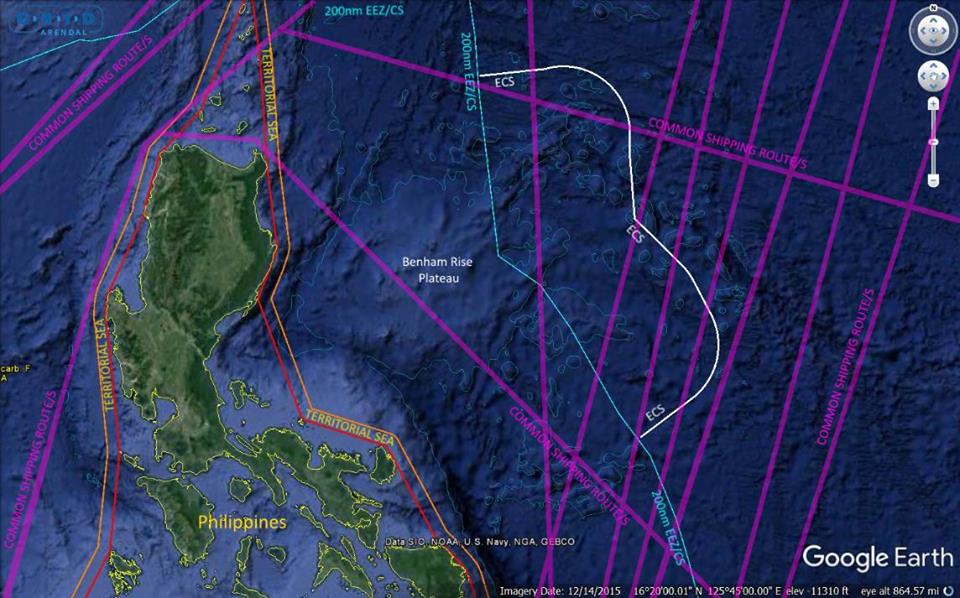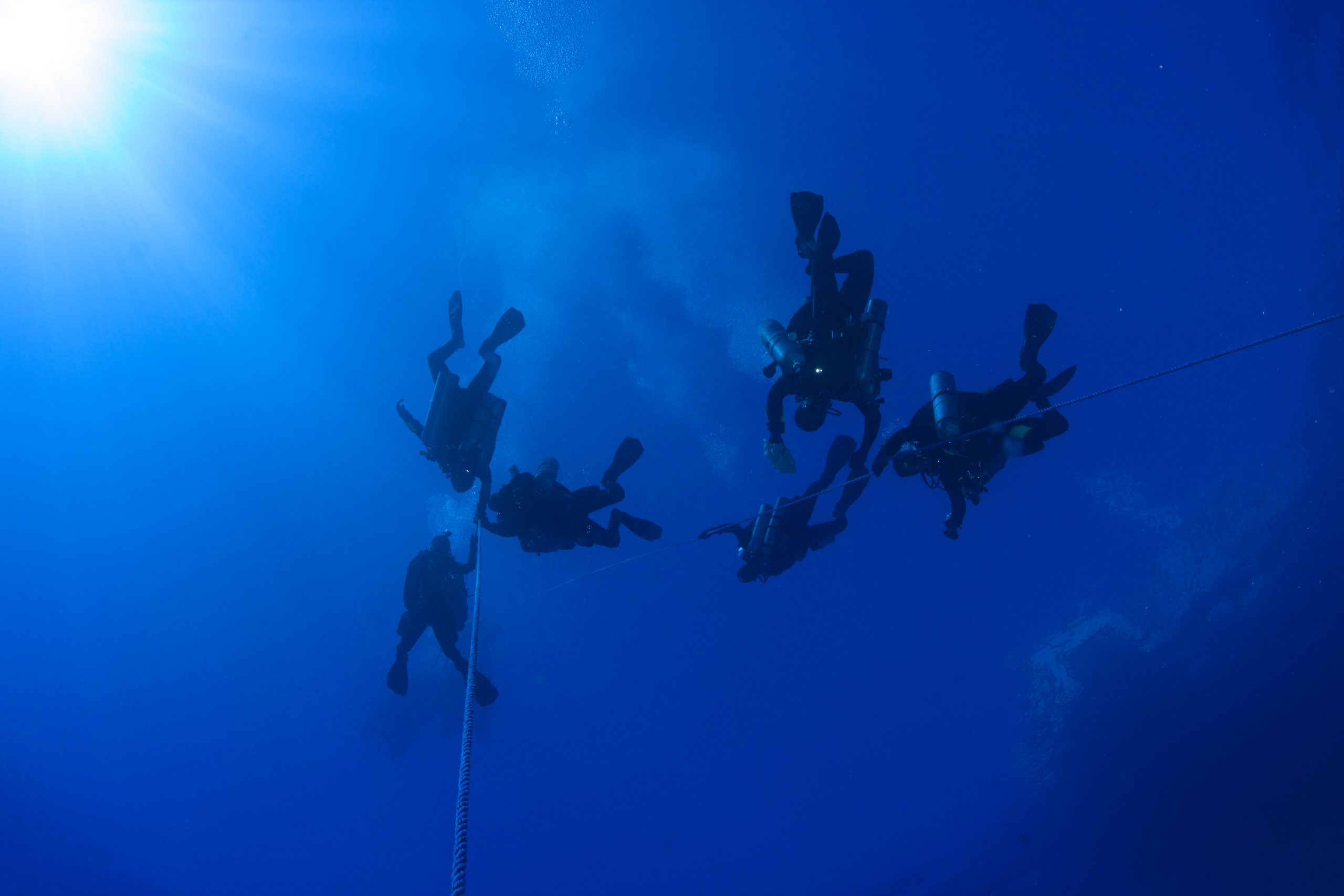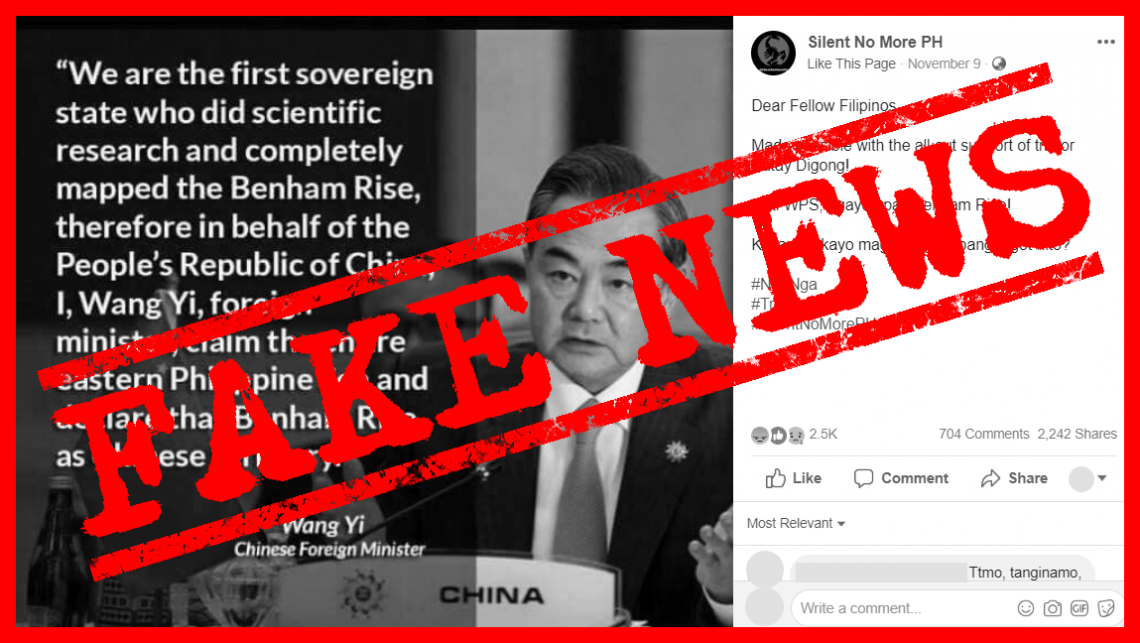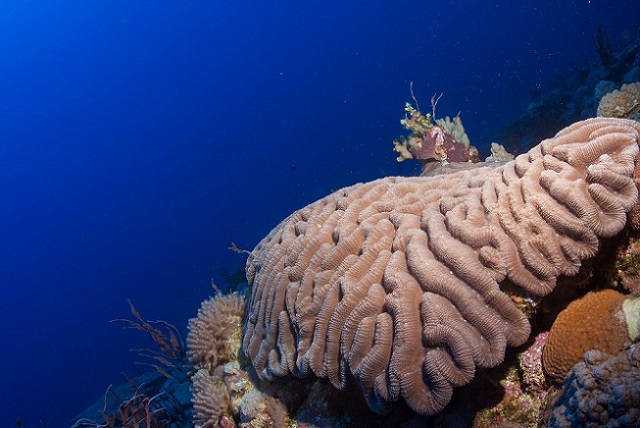
Old massive corals grow in the bank undisturbed. This slow-growing coral may have a life span of up to 900 years. Photo by OCEANAUPLB.
The latest issue on Philippine Rise, formerly known as Benham Rise, focused on Senior Associate Justice Antonio T. Carpio’s statement that China should not be allowed to conduct marine scientific research in Philippine Rise which the United Nations Commission on the Law of the Sea has recognized as part of the Philippine extended continental shelf (350 nautical miles from the shore).
Presidential Spokesperson Harry Roque disagrees.
Carpio said, “UNCLOS is a ‘package deal,’ which means that a state that ratifies UNCLOS must accept its rights and obligations as one entire package.A ratifying state cannot cherry pick – accepting only certain provisions and rejecting others.
“By refusing to accept the award of the UNCLOS arbitral tribunal pursuant to the dispute settlement provisions of UNCLOS, China is not accepting its obligation under UNCLOS. China should not be allowed to enjoy its rights under UNCLOS, like conducting MSR in Benham Rise, while it refuses to accept its obligation under the arbitral award. Otherwise, China is cherry picking and not taking UNCLOS as one package deal.”
It must be stressed that Philippine Rise is not part of Philippine territory. The country therefore does not exercise sovereignty – the supreme right of the state to command obedience within the state- over it.
But as part of the country’s extended continental shelf, only the Philippines has sovereign rights overthe 13-million-hectare undersea region east of Luzon. Article 77 of UNCLOS. A state sovereign rights include to explore and exploit the oil, gas and other mineral resources in Benham Rise, and even the sedentary species (e.g., abalone, clams and oysters).
UNCLOS also provides that other states have rights on another state’s extended continental shelf but are limited to(1) fishery research because the fish in the ECS belongs to mankind; (2) surveys on water salinity and water currents because the water column in the ECS belongs to mankind; and (3) depth soundings for navigational purposes because there is freedom of navigation in the ECS.
Carpio said in an explainer on Benham Rise last year said, “However, if the Chinese vessels were conducting seismic surveys to look for oil, gas and minerals, then they would be in violation of UNCLOS because UNCLOS has reserved the oil, gas, minerals and even sedentary species in Benham Rise to the Philippines since Benham Rise is part of Philippine ECS.”
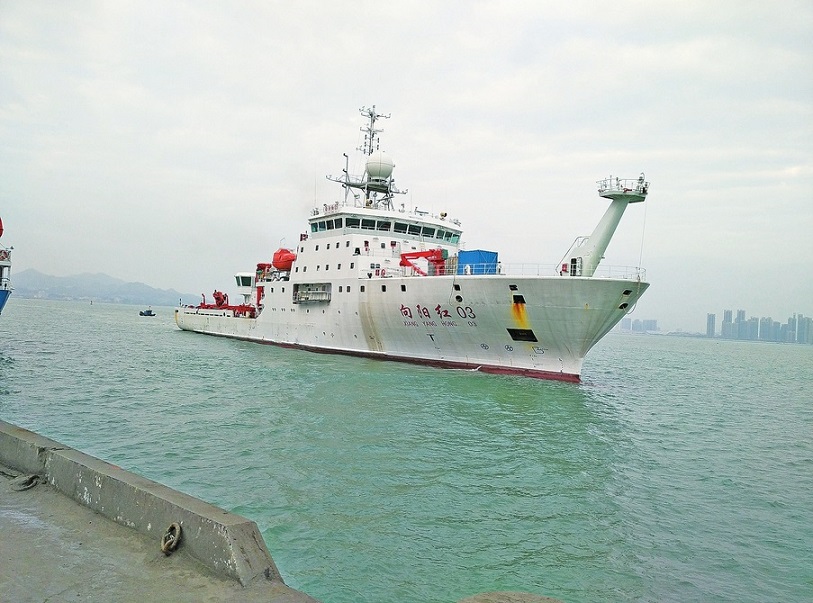
Xiang Yang Hong 03, the research vessel that conducted a survey in Benham Rise April 2017 docked in Xiamen.Photo from China Ocean News.
Now, Roque disclosed that it was President Duterte himself who decided to allow the Chinese to conduct scientific research in Philippine Rise with University of the Philippines scientists.
Roque’s admission came after Magdalo Rep. Gary Alejano exposed last Jan. 12 theDepartment of Foreign Affairs approval of the MSR of theInstitute of Oceanology of Chinese Academy of Sciences (IO-CAS) for a marine scientific research (MSR) in Philippine waters.
“As a requirement, they will be joined by the University of the Philippines – Marine Science Institute (UP-MSI). The project’s area will cover Eastern Luzon, where Benham Rise is located, and Eastern Mindanao, Alejano said.
Alejano also revealed that a similar request from a French-based non-profit organization, Tara Expeditions Foundation, to conduct marine research in the same area was disapproved.
Roque disputed Carpio’s insistence of China’s acceptance of the international tribunal’s ruling on the South China Sea filed by the Philippines against China.
He said China’s acceptance is “immaterial” because “the decision of the arbitral tribunal is considered a binding legal principle, whether countries agree to it or not.”
Here’s Carpio’s statement:
China is legally bound by the tribunal’s ruling, whether China likes it or not. That is the compulsory nature of international law. But China can decide to go rogue and refuse to accept and implement the ruling.
This is what China has done – refusing to vacate Mischief Reef which the tribunal ruled is submerged at high-tide and forms part of the Philippine EEZ. The tribunal ruled that only the Philippines can exploit or erect a structure in Mischief Reef.
In international law, where there is no world policeman to enforce a legally binding ruling, acceptance and implementation of the ruling by the losing State is obviously material. More so if the losing State is a military power, and the winning State is not.
That is why the UNCLOS provisions governing compulsory arbitration provide that the ruling ‘shall be complied with by the parties to the dispute.’ The losing State is not only legally bound, but must also comply, with the ruling.
So while China is indisputably legally bound by the ruling, it is important that China accept and implement the ruling. As long as China refuses to accept and implement the ruling, the Philippines should deny China’s request to conduct any marine scientific research in Benham Rise. The Philippines would be foolish to grant China’s request while China refuses to comply with the ruling.
Of course, there are aspects of the ruling that can be implemented even without China’s acceptance of the ruling. Thus, when the tribunal ruled that the nine-dashed line has no legal effect, it confirmed the existence of high seas in the South China Sea and EEZs around such high seas. The naval powers of the world, led the by the U.S., are sailing in the high seas and EEZs of the South China Sea to assert freedom of navigation, even without China’s acceptance of the ruling.

